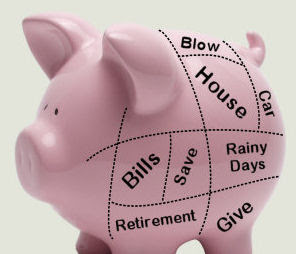From the FINANCIAL Dynamic;
One hundred thousand dollars. Since the 1980s, the magical "six-figure" salary has been a benchmark for financial success. Not too long ago, that income often meant two nice cars in the garage of a large house, fun family vacations and plenty of money left over to save for retirement and college tuition.
But times have changed. Not only has standard inflation steadily eroded the real value of a $100,000 income, the costs of housing, health insurance and college tuition have risen dramatically in recent years. Consider the rising costs of food, energy and the necessities of a middle-class life and that six-figure luxury quickly turns to six-figure mediocrity.
Less than 20 percent of American households even break the six figures, but many who earn incomes near the mark find that their prized incomes don't take them as far as the hype. Many say that while breaking the $100,000 annual income mark may still be an impressive milestone, it doesn't exactly roll out the red carpet.
Costs eat away at benchmark
According to the U.S. Census Bureau, only 5.63 percent of individual income earners and only 17.8 percent of households had incomes of $100,000 or more in 2006. In fact, the median annual household income for 2006 was $48,021, a little less than half of the six-figure benchmark. The overwhelming majority of Americans still look up to a $100,000 income, but the expectations of what comes with that income are rapidly slumping.
According to the U.S. Census Bureau, only 5.63 percent of individual income earners and only 17.8 percent of households had incomes of $100,000 or more in 2006. In fact, the median annual household income for 2006 was $48,021, a little less than half of the six-figure benchmark. The overwhelming majority of Americans still look up to a $100,000 income, but the expectations of what comes with that income are rapidly slumping.
The Labor Department recently revealed that the inflation rate for 2007 was the worst in 17 years, with consumer prices rising 4.1 percent, compared to 2.5 percent in 2006. Much of this was fueled by energy costs (up 17.4 percent for the year) and food costs (up 4.9 percent for the year), both of which were the biggest increases since 1990. Just to keep up with standard inflation, a $100,000 salary in 1990 would have to be $162,760 today. Or reversing the view, a $100,000 salary in 2000, adjusted retroactively for inflation, would be worth only $82,609 today. (http://bit.ly/axBNwx)
To your wealth!
Leo Stroobants








